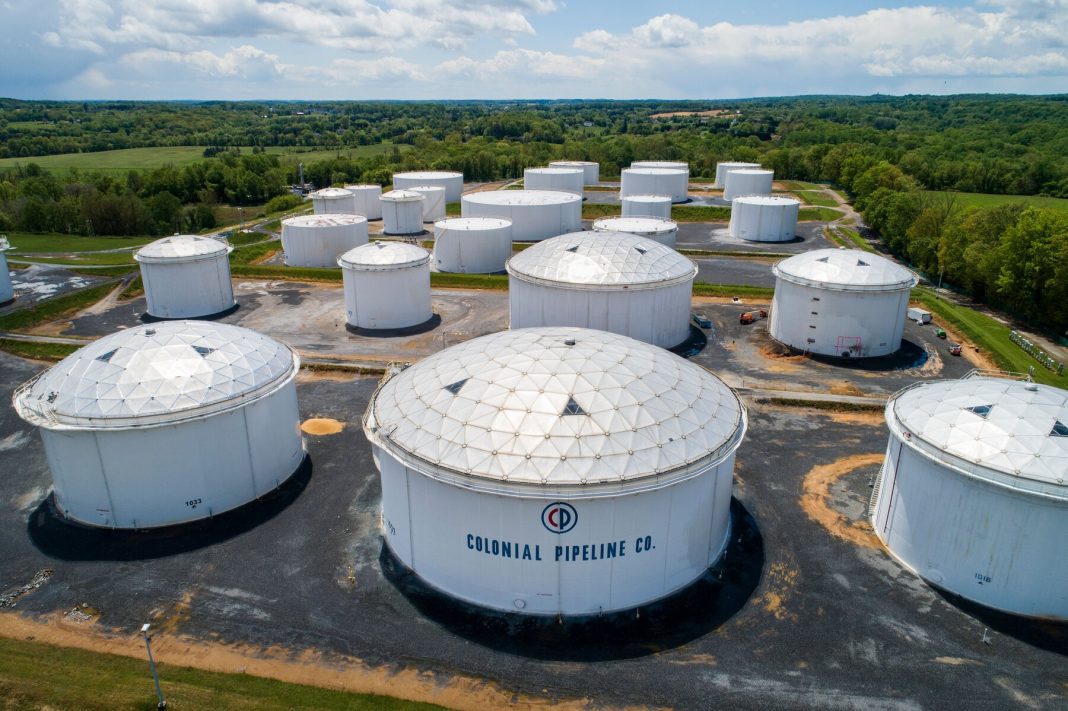A cyberattack was initiated on the largest fuel pipeline in the United States Friday, leaving the enormous Colonial Pipeline with a quandary of how to restore service before fuel prices climb into worrying territory. The hackers identified themselves as DarkSide, an apolitical group that originated in Russia that captured sensitive files from the pipeline’s servers. The group is demanding a ransom to recover the files and to restore service, but the amount of money they are seeking has not been reported publicly.
The pipeline moves in excess of 100 million gallons of gasoline, diesel, jet fuel, and other petroleum products from Houston to New York Harbor daily. Being down for even a few days will have an effect on fuel prices on the East Coast.
Who are the hackers?
“The FBI confirms that the Darkside ransomware is responsible for the compromise of the Colonial Pipeline networks. We continue to work with the company and our government partners on the investigation,” the FBI said in a statement. They’re reportedly been organized as DarkSide since August 2020, a relatively short time, but have targeted organizations with ransoms into the tens of millions of dollars.
Likely based out of a Russian-speaking nation – since they haven’t targeted organizations in Russian-speaking countries – their goals are surprisingly non-political. The hackers abide by a “code of ethics” of sorts, promising to leave medical industries, schools, non-profit organizations, and government agencies untouched. They only target for-profit companies able to pay the ransom, and they also say that they donate a portion of their profits to charities.
However innocent and well-meaning the messaging, DarkSide’s attack on the Colonial Pipeline appears to have unintentional geopolitical consequences, and they’ve said they’ll more carefully vet their choices in the future to avoid such effects.
How the ransomware attack affects US
With such voluminous pipeline flow disrupted, the effects are almost immediate on the American fuel price at the pump. Atlanta will be among the first major centers to feel the pinch with fuel prices climbing above the $3 per gallon mark for the first time in seven years by the end of the week, and there could be fuel stations that run short of supply in days.
In a statement, AAA spokesperson Jeanette McGee said, “This shutdown will have implications on both gasoline supply and prices, but the impact will vary regionally. “Areas including Mississippi, Tennessee and the east coast from Georgia into Delaware are most likely to experience limited fuel availability and price increases, as early as this week. These states may see prices increase three to seven cents this week.”
As the shutdown continues, the US Commerce Secretary Gina Raimondo spoke about actions taken by the federal government. “It’s an all-hands-on-deck effort right now. We are working closely with the company, state and local officials to make sure that they get back up to normal operations as quickly as possible and there aren’t disruptions in supply.”
For the auto industry, the pipeline hack likely won’t have any lasting impact aside from a blip in fuel prices temporarily. It does, however, spark concerns about cybersecurity at dealerships. Playing it loose with security, logging in remotely from unsecure devices, and failing to implement data security options and insurance against an attack leaves dealerships vulnerable to cyberattacks like this one from DarkSide.
Now would be a great time to shore up cybersecurity.
Did you enjoy this article from Jason Unrau? Read other articles on CBT News here. Please share your thoughts, comments, or questions regarding this topic by submitting a letter to the editor here, or connect with us at newsroom@cbtnews.com.
Be sure to follow us on Facebook and Twitter to stay up to date or catch-up on all of our podcasts on demand.
While you’re here, don’t forget to subscribe to our email newsletter for all the latest auto industry news from CBT News.










